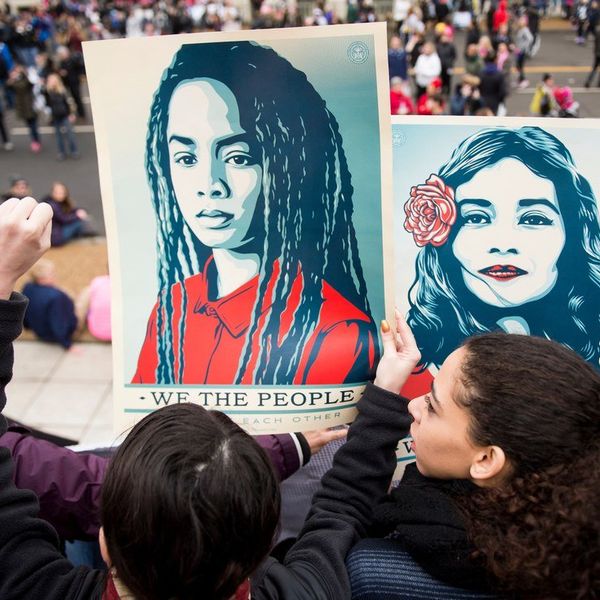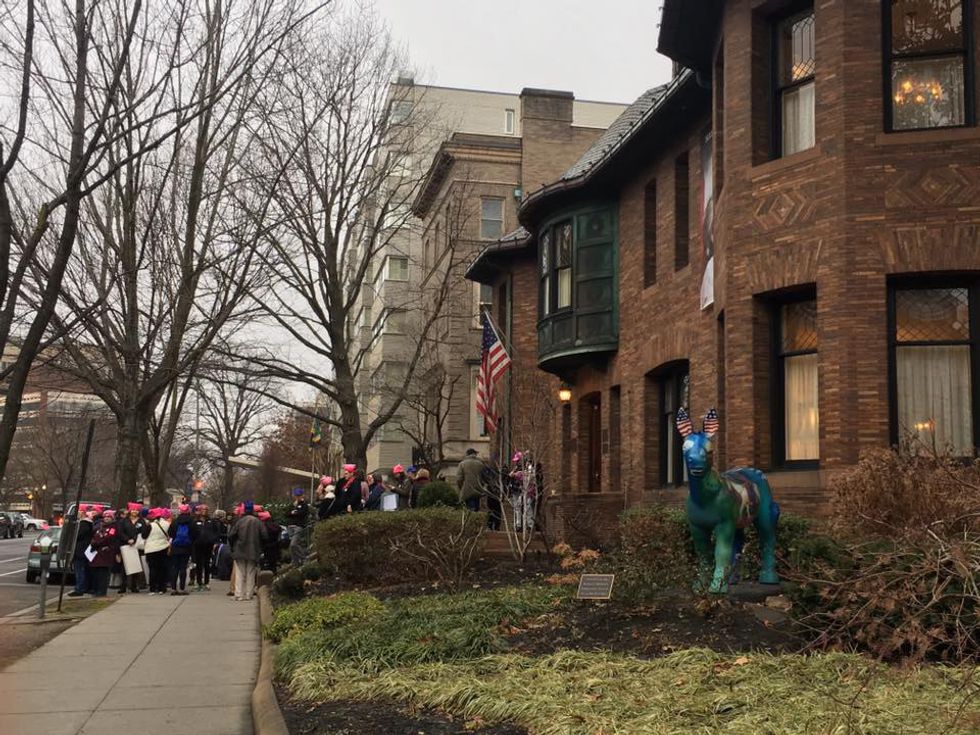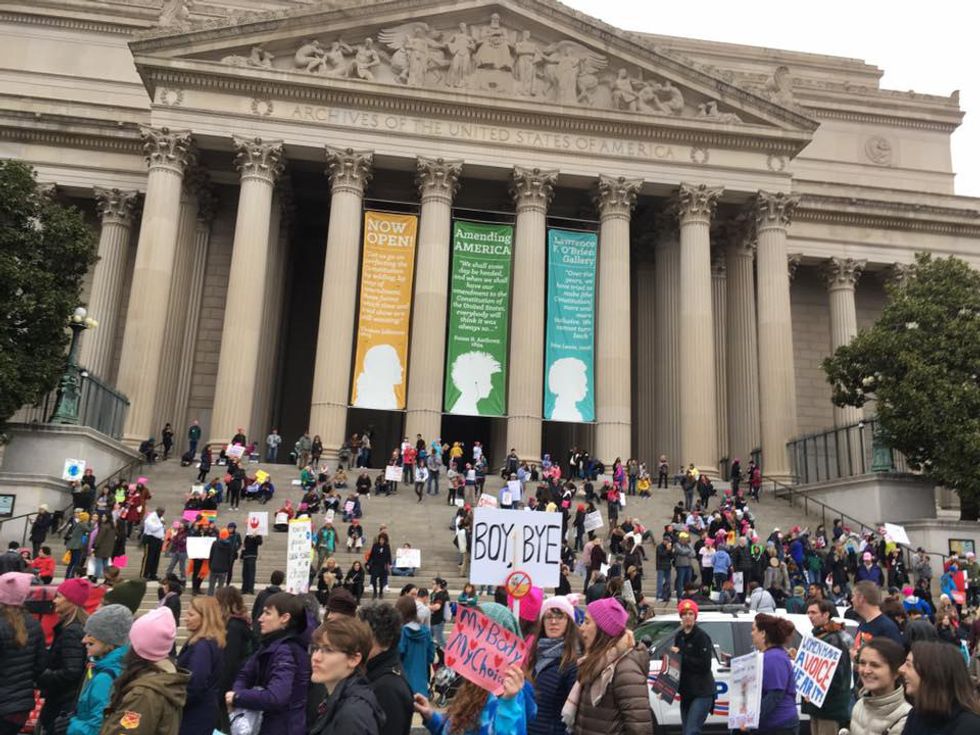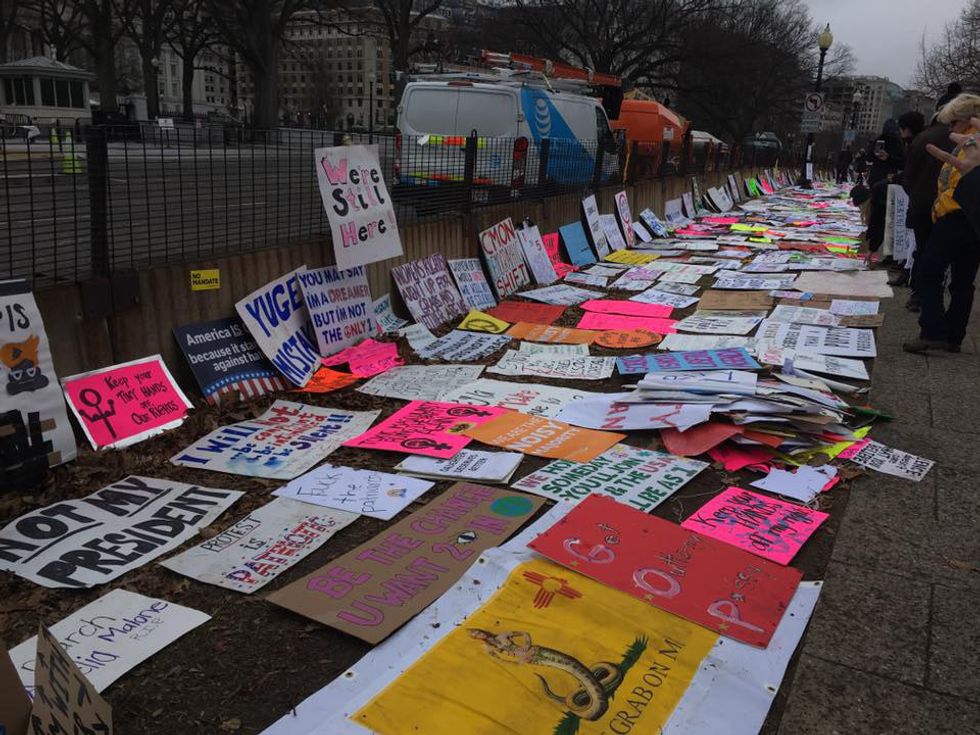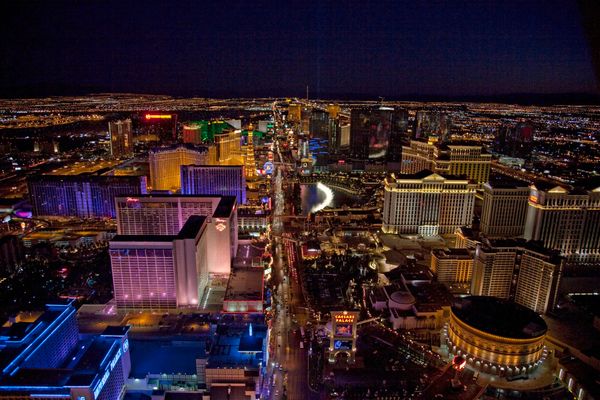In this political climate, we wear our hearts on our sleeves and our politics on our hats. This was especially the case in Washington, D.C. over inauguration weekend, as Trump supporters attending the inauguration donned their red "Make America Great Again" baseball caps, and many of those who associate themselves with being a part of the popular vote wore "pink pussy hats."
I was one of the hundreds of thousands of people to take their concerns about their rights and the rights of others out to the streets in D.C. on January 21st. I marched with friends and family, many of whom have been lifelong activists. The city was eerily quiet and still the night before the march, with a handful of well-dressed people heading to inaugural balls and a few tourists exploring the monuments on the dark National Mall. Leaving DuPont Circle and heading to the metro the next morning, however, was quite a different story: the neighborhood was bustling with people in pink hats, the tone of the morning completely different from the night before. We were told by a group of people that the platforms at the metro were so full that trains were not stopping. We, along with many others, walked in solidarity to the National Mall for the rally.
Outside of the National Woman's Democratic Club in DuPont Circle the morning of the March.
The Women's March did not have a spirit of fear, but rather of resilience, determination and passion. Any anger and disbelief that had existed for these people in the months leading up to the inauguration did not entirely disappear, but was nowhere near as apparent as the feeling of solidarity. While the March's platform was quick to not deem itself an anti-Trump protest, it's clear that the hundreds of thousands of people that came to march were not fond of the real estate mogul's actions and intentions on the campaign trail, during the transition, and on his first day in office.
We stood for hours on end as celebrities, event organizers, the mothers of Trayvon Martin and other black men who had been killed in incidents of police brutality, and heads of organizations such Planned Parenthood spoke to the crowd, anticipation building quickly. As the rally stretched on an hour longer than it had been scheduled to go, there were a couple of minutes where a rumor spread that Trump wasn't allowing the march to happen, but the organizers quickly came on stage to say that the march was going to proceed. Once people started moving, the marchers slowly broke off in two different directions, heading down the streets in downtown Washington and on toward the White House, with chants of "welcome to your first day, we will not go away" and "the people united will never be divided" and "this is what democracy looks like" clearly heard throughout the city.
The Women's March as it heads toward the White House.
There were many instances where it felt more like a people's march, as men and women and children and teenagers all stood listening to speakers and marching together. The crowd was made up of many white people, but was also representative of many races and backgrounds, despite its initial criticism. I had my grandmother, mom, and friend all next to me, as well as a man and woman reporter duo, a mixed race family, and a lesbian couple. Signs were clever and not representative of not just one issue, but several; from reproductive rights to education to immigration to climate change. Having so many issues represented can be tricky to balance in terms of being as inclusive as possible, especially when the defining feature of the march were the pink pussy hats--worn in reference to one of many Trump scandals in which he said he grabbed women by their genitals--isn't inclusive to transgender people.
At the end of the march, people put signs up at a temporary fence a short distance from the main gates of the White House. They were still there when a friend and I went by the next morning, as marchers went by in awe taking pictures, and Trump supporters shook their heads and kept walking.
Signs from the March outside of the White House the next morning.
Since January 21st, the day of the Women's March on Washington and its sister marches across the globe, numerous marches have appeared as upcoming events on Facebook, much like how the Women's March started out. These marches include the Tax Day March on April 15th, the People's Climate March on April 29th, the March for Science on March 4th, the Immigrants' March on May 6th, the National Pride March on June 11th, the Lawyers' March on Washington on July 2nd, and the Teachers' March on Washington on July 15th. Many sister marches will be held in cities throughout the country for those not able to join the ones set to be held in Washington, D.C. Now is not the time to normalize Trump's acts, but to continue to fight for our planet and the rights of marginalized people together.


